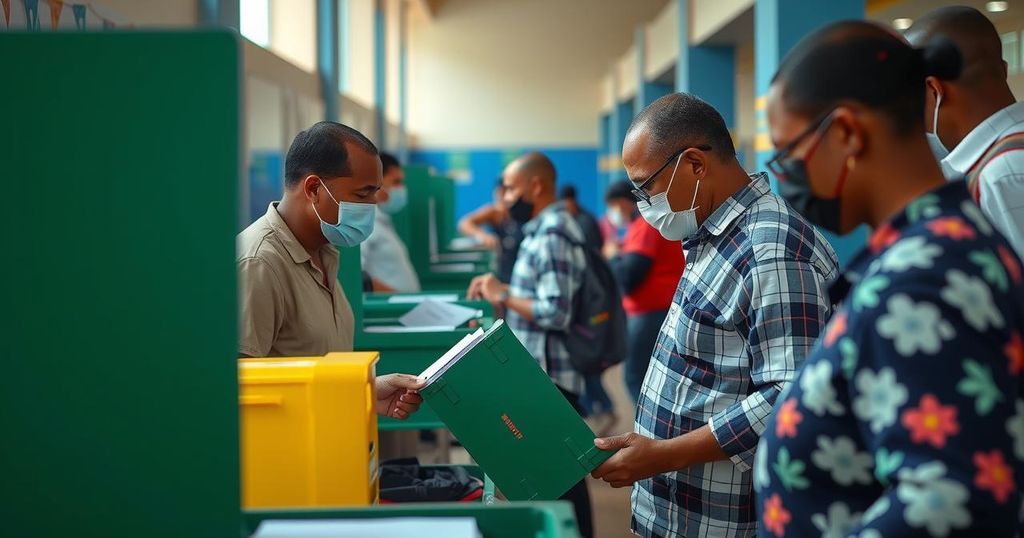Mauritius is holding parliamentary elections with approximately one million voters electing 62 members amid a cost of living crisis and a recent wire-tapping scandal. Prime Minister Pravind Kumar Jugnauth’s party faces opposition amidst heightened security and concerns of electoral fraud. Economic growth projections have not translated into improved living standards for many citizens, prompting both major parties to propose differing strategies to alleviate economic pressures.
Mauritius is currently conducting its parliamentary election amid a significant cost of living crisis, with around one million registered voters expected to elect 62 members to the National Assembly. Polling venues opened at 7 AM and are set to close at 6 PM local time on the day of the election. This marks the 12th election since the island nation gained independence from the United Kingdom in 1968, and results are anticipated on the following day. Prime Minister Pravind Kumar Jugnauth’s Militant Socialist Movement party, along with opposition parties, have made promises to address the pressing economic concerns affecting citizens in the prosperous Indian Ocean country. In addition to the economic challenges, the election has been overshadowed by a wire-tapping scandal that has affected the credibility of the ruling party. The authorities recently attempted to impose a social media ban in response to the scandal, which they quickly rescinded due to backlash from opposition groups and media outlets. Security measures have been ramped up at polling stations amidst allegations of potential electoral fraud, drawing the attention of the African Union, which has dispatched observers to ensure a fair electoral process. Mauritius, home to approximately 1.3 million inhabitants, has established itself as a crucial economic link between Africa and Asia, heavily relying on sectors such as offshore finance, tourism, and textiles for revenue generation. Despite projections of a 6.5 percent economic growth this year, the benefits have not been uniformly experienced by the populace, leading to widespread discontent regarding living standards. In light of these issues, the ruling Alliance Lepep coalition has proposed measures such as raising the minimum wage, increasing pensions, and reducing value-added taxes on essential goods. Conversely, the opposition, led by the Alliance of Change coalition, has vowed to implement a range of initiatives aimed at alleviating the economic strain on citizens by proposing free transport and internet services, alongside fuel price reductions.
The parliamentary elections in Mauritius are critical, particularly amid a looming cost of living crisis that has captured the attention of voters. As a nation recognized for its stability and prosperity in Africa, Mauritius grapples with citizens’ discontent despite positive economic growth indicators. The political climate has been tense, partly due to a recent scandal that has raised concerns surrounding election integrity and governance. This election cycle may influence the nation’s direction and leadership, particularly concerning socioeconomic reforms.
In conclusion, the parliamentary elections in Mauritius highlight the pressing cost of living crisis as a central issue for voters, overshadowed by political scandals that have led to heightened tensions. As parties present their proposals for economic recovery and reform, the outcome of this election will determine the future governance and socioeconomic policies of this stable African nation. The resolve of the electorate will be tested as they navigate their preferences against a backdrop of significant economic challenges.
Original Source: www.aljazeera.com







